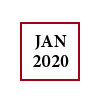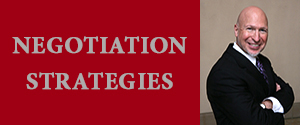

Introduction
Recent news of the assassination of a top-level Iranian leader by U.S forces sent shock waves throughout the Middle-East and beyond. If Iran chose not to retaliate, she risked looking weak; being perceived as not avenging the blood of her leaders and martyrs; being seen as allowing herself to be intimidated and bullied; and potentially setting a terrible precedent of not defending her sovereignty and citizens, thereby exposing her flanks to further attacks. For these reasons, retaliation was inevitable.
As Iran and the U.S descended into a potential cycle of attacks and retaliations, a pressing question on the minds of many was: How can we de-escalate an already severely escalated conflict so that we might avoid global destabilization and avert a cataclysmic war?
This question is not only pertinent to international relations, but personal, business and professional relations also: How do we de-escalate an already escalated conflict?
Regulate Emotions Through a "Cooling-off" Period
In the heat of conflict, parties experience abject anger. They feel grossly disrespected and deeply violated. They believe their honor, dignity and pride has been viciously attacked. At this highly emotional and volatile stage of conflict, actions and reactions are likely to be destructively impulsive and often irrational.
Before conflict can be resolved it first needs to be contained and managed so as to mitigate hasty decisions and hazardous behavior. For conflict to be managed and for rational thinking to take its rightful place, it is imperative to establish an initial “cooling-off” period. During this stage, parties are encouraged to exercise restraint and suspend all impulsive actions of attack or retaliation that could further exacerbate the situation.
To successfully implement an effective “cooling-off” period, a mutually trusted and respected neutral mediator who yields a degree of influence, should persuade all parties to suspend any further acts of aggression while tensions are eased to a more manageable level.
In the current U.S. - Iran crisis for example, perhaps someone like President Putin, who possesses power of influence over Iran, might have served as that neutral and encouraged them to withhold any immediate reckless retaliation. (It turned out to be Switzerland. See Wall Street Journal report).
Read more —>
Recent news of the assassination of a top-level Iranian leader by U.S forces sent shock waves throughout the Middle-East and beyond. If Iran chose not to retaliate, she risked looking weak; being perceived as not avenging the blood of her leaders and martyrs; being seen as allowing herself to be intimidated and bullied; and potentially setting a terrible precedent of not defending her sovereignty and citizens, thereby exposing her flanks to further attacks. For these reasons, retaliation was inevitable.
As Iran and the U.S descended into a potential cycle of attacks and retaliations, a pressing question on the minds of many was: How can we de-escalate an already severely escalated conflict so that we might avoid global destabilization and avert a cataclysmic war?
This question is not only pertinent to international relations, but personal, business and professional relations also: How do we de-escalate an already escalated conflict?
Regulate Emotions Through a "Cooling-off" Period
In the heat of conflict, parties experience abject anger. They feel grossly disrespected and deeply violated. They believe their honor, dignity and pride has been viciously attacked. At this highly emotional and volatile stage of conflict, actions and reactions are likely to be destructively impulsive and often irrational.
Before conflict can be resolved it first needs to be contained and managed so as to mitigate hasty decisions and hazardous behavior. For conflict to be managed and for rational thinking to take its rightful place, it is imperative to establish an initial “cooling-off” period. During this stage, parties are encouraged to exercise restraint and suspend all impulsive actions of attack or retaliation that could further exacerbate the situation.
To successfully implement an effective “cooling-off” period, a mutually trusted and respected neutral mediator who yields a degree of influence, should persuade all parties to suspend any further acts of aggression while tensions are eased to a more manageable level.
In the current U.S. - Iran crisis for example, perhaps someone like President Putin, who possesses power of influence over Iran, might have served as that neutral and encouraged them to withhold any immediate reckless retaliation. (It turned out to be Switzerland. See Wall Street Journal report).
Read more —>